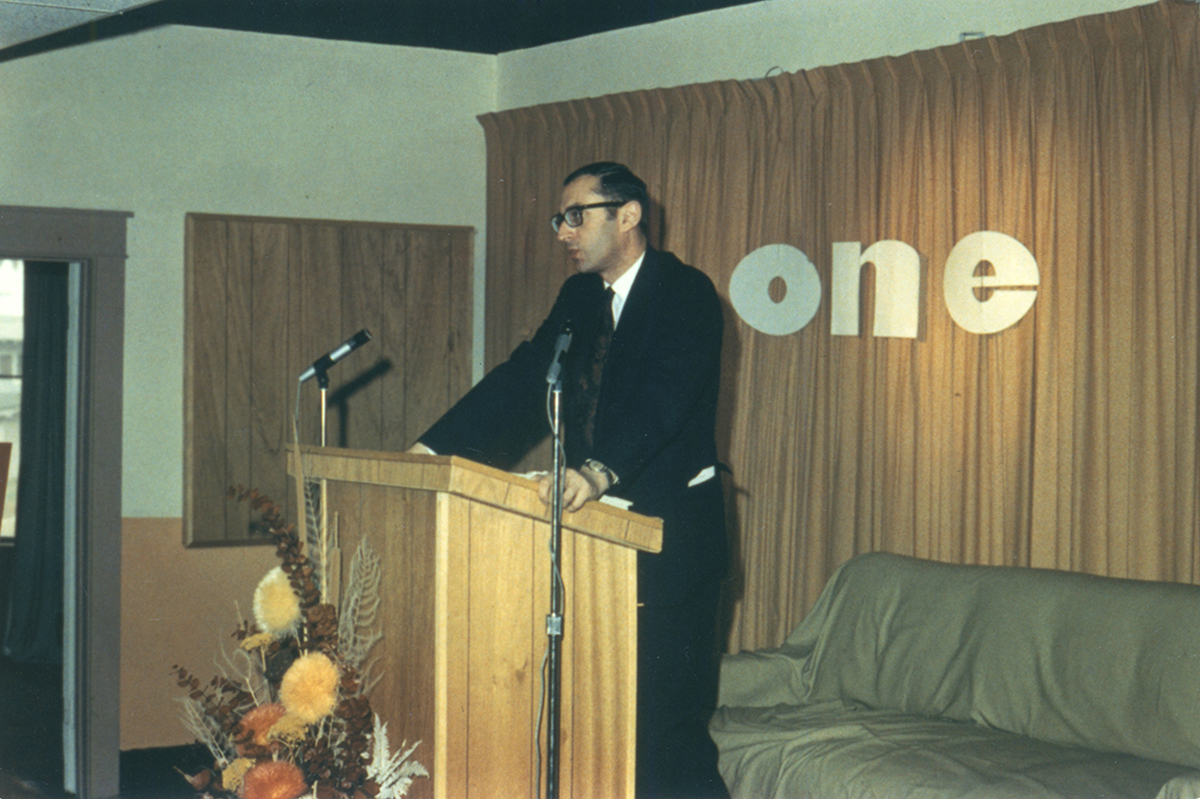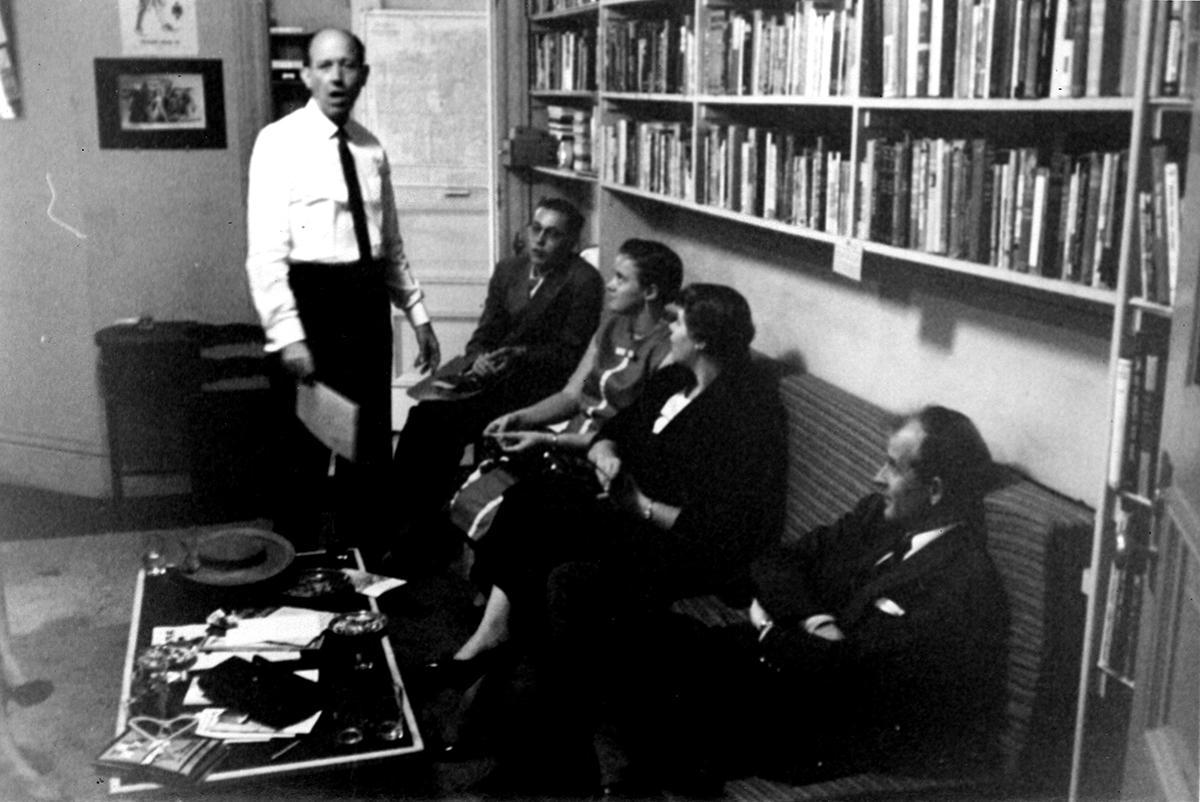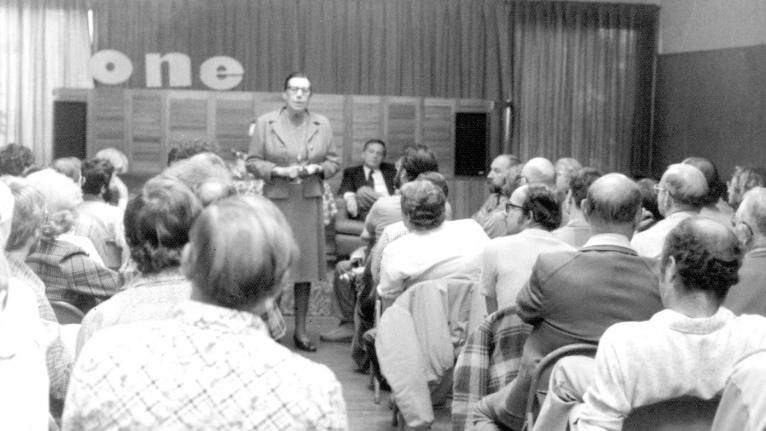June 26, 2014
First of all, let me state that I do not regard homosexuality as a disease. I don’t like to refer to this business of being cured. I never use it. I try to help each individual appreciate himself. I really think the major thing is to know thyself. It’s the largest commandment I know. It means a terrific lot of exploring.
Psychiatrist Dr. Blanche Baker at Midwinter Institute, 1955
We did develop an award called the Sons of Bilitis for those men who had been helpful to us—the S.O.B. award. And I think there are a great many S.O.B.s at this table.
Daughters of Bilitis founder Phyllis Lyon at Gaythink II panel discussion, 1976
Mr. Right #1 was beautifully schizophrenic and he was much younger than I was. I thought he was just incredibly colorful and I liked him because he made me suffer a lot. He was always off hungering after the ideal surfer while I was home suffering waiting for his footsteps on the patio and writing poems to still my hunger and anticipations and fear of being abandoned. I was a real mess.
Poet Robert Peters, 1978
Going back to the [Mattachine Society] guilds, I’ll never forget as I came in… as the new guild members were initiated and held hands with the old timers in a circle, [all the members said] ‘And we are dedicated to the principle that never again shall anyone crossing that maelstrom of emotion shall make that crossing friendless, afraid, and alone.’ And those words I’ve carried with me through the years.
Mattachine Society and ONE Inc. member Geraldine Jackson, 1962
Preserving the voices of our LGBTQ pioneers, ONE is proud to announce that over 150 audio recordings from ONE’s collections have been digitized and are now available online via the USC Digital Library. Thanks in part to a generous grant from The GRAMMY Foundation®, nearly 200 hours of audio can be streamed online, capturing the voices of LGBTQ pioneers like Harry Hay, Phyllis Lyon, Del Martin, Hal Call, and Antony Grey; and allies like Harry Benjamin, Evelyn Hooker, and Adele Starr.

British gay activist Antony Grey speaks at ONE Incorporated, 1967. With the financial support of Reed Erickson, ONE Incorporated sponsored a national speaking tour for Mr. Grey in 1967. ONE Incorporated Records. ONE Archives at the USC Libraries
From 1955 through the 1980s, ONE Incorporated held hundreds of public programs, such as its monthly speaker series and Midwinter Institutes, providing a forum for the LGBTQ community to discuss civil rights, education, police relations, religion, literature, culture, and LGBT experience. Thankfully, many of these talks were recorded by the organization’s dedicated volunteers. Now, for the first time since these programs were recorded, you can listen to psychiatrist Blanche Baker in 1955 giving one of the earliest public speeches against the listing of homosexuality as a mental illness. You can hear the notorious Fred Halsted talk in 1976 about producing his experimental films in the leather community. You can hear what went on at a 1961 gathering of The Big Three—representatives from ONE Inc., Mattachine Society, and Daughters of Bilitis—bringing together the greatest LGBTQ groups of the era to discuss the first ever “Homosexual Bill of Rights.”
In addition, this project helps preserve interviews with numerous LGBTQ people, including gay composer Lou Harrison and several activists in the campaign against the 1986 LaRouche initiative to quarantine people living with HIV/AIDS. Also digitized are recordings of 1970s conferences on transgender health sponsored by the Erickson Educational Foundation, including talks from the first ever International Symposium on Gender Identity (today known as the World Professional Association for Transgender Health Symposium.)
To listen to these and many other audio clips, click here.

W.Dorr Legg stands before ONE Incorporated staff and author Harry Otis (far right). Circa 1957-1958. ONE Incorporated Records. ONE Archives at the USC Libraries
ONE would like to thank volunteer Jennifer Darwent and Deb Simone, the folks at George Blood Audio and Video, and The GRAMMY Foundation® for their generous support in making these never before heard recordings available for public research.
Loni Shibuyama
Archivist
